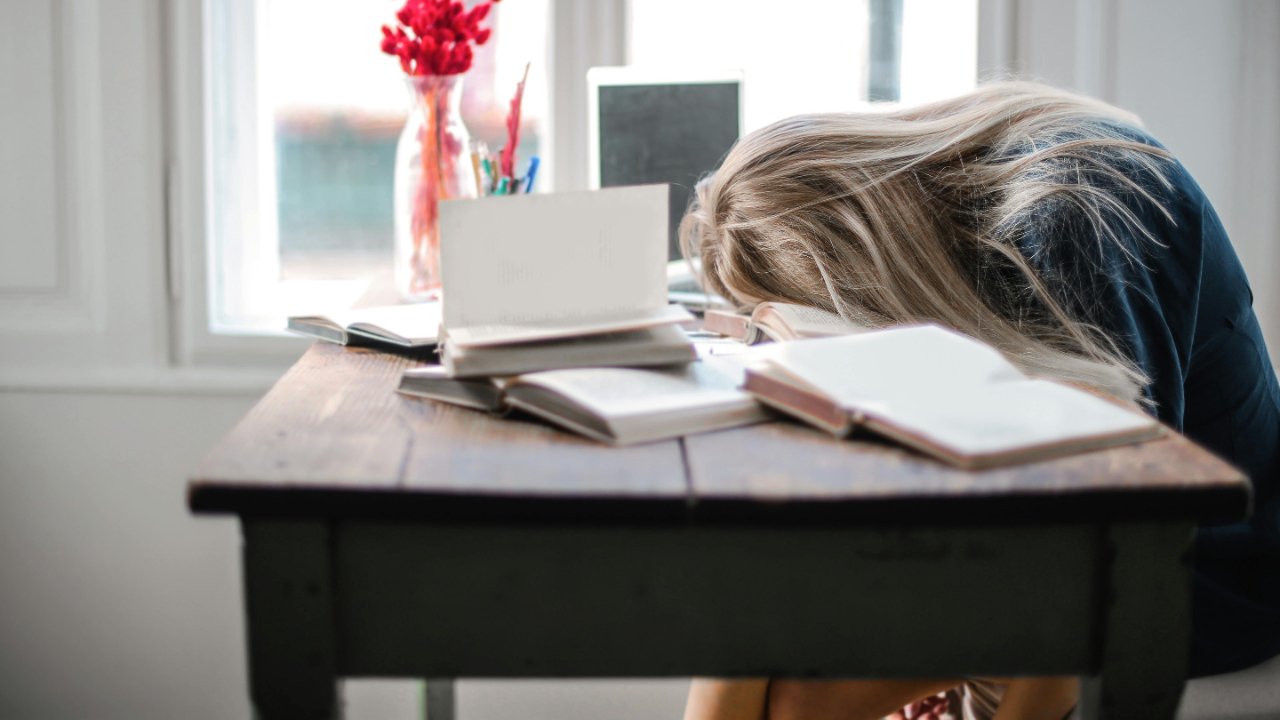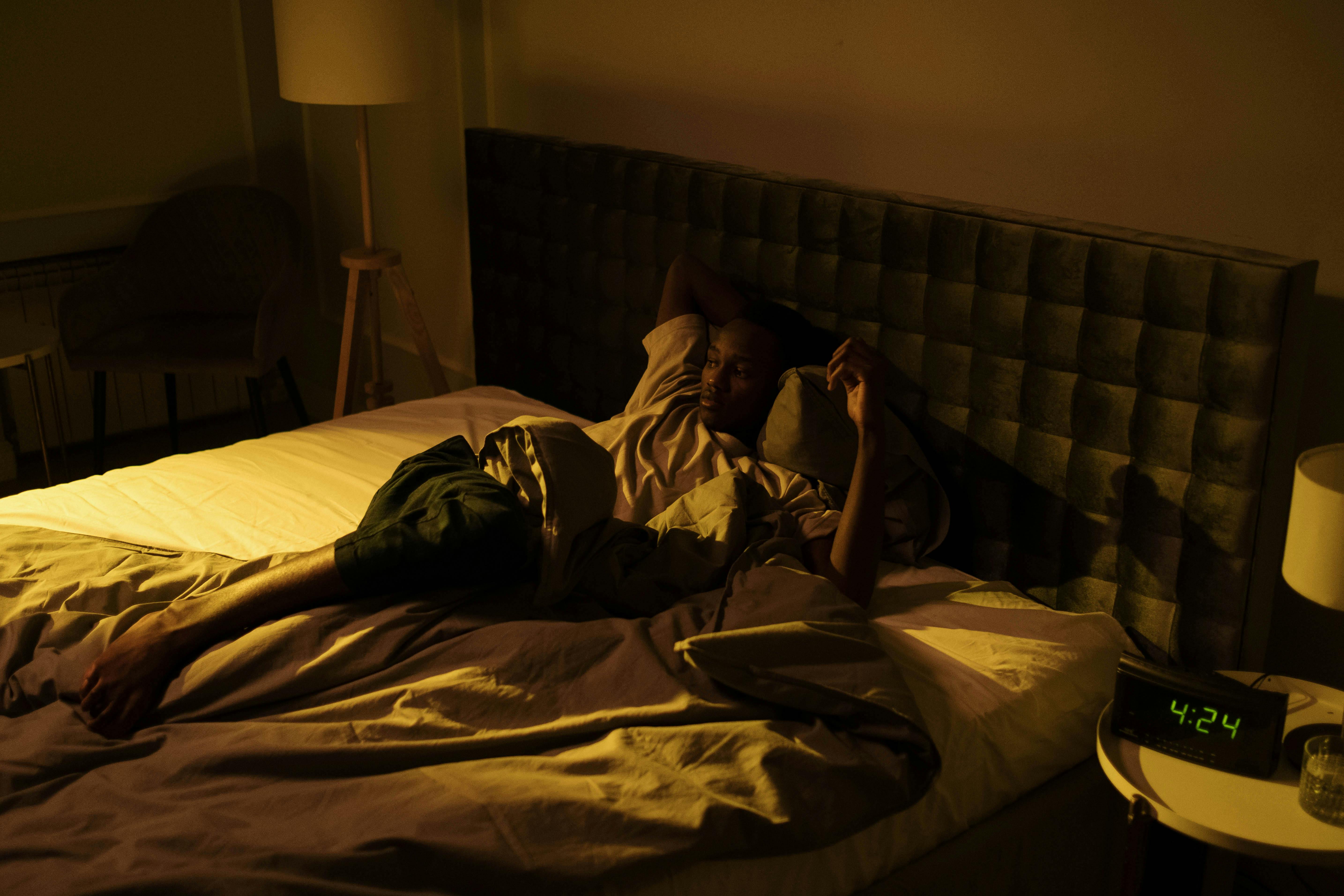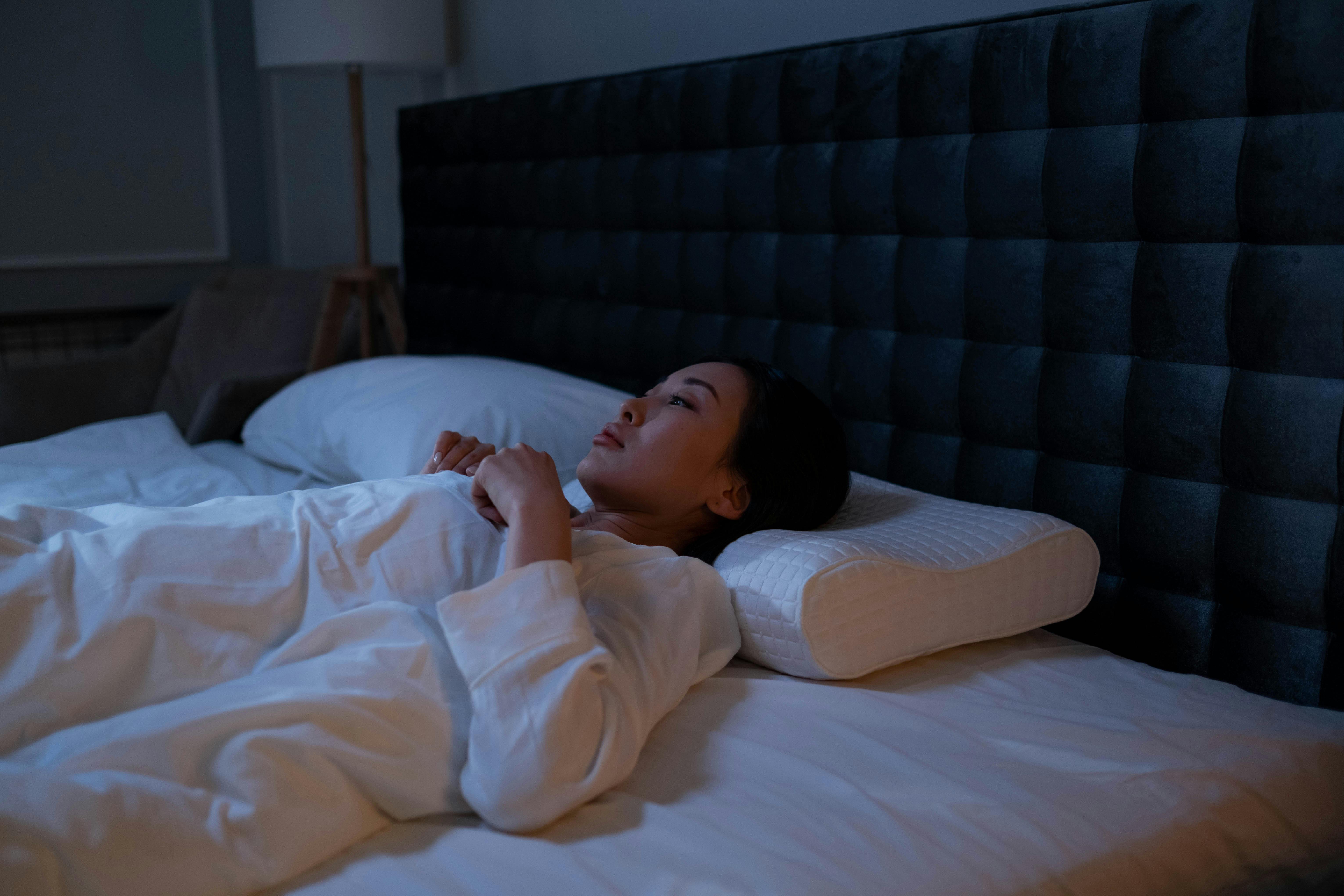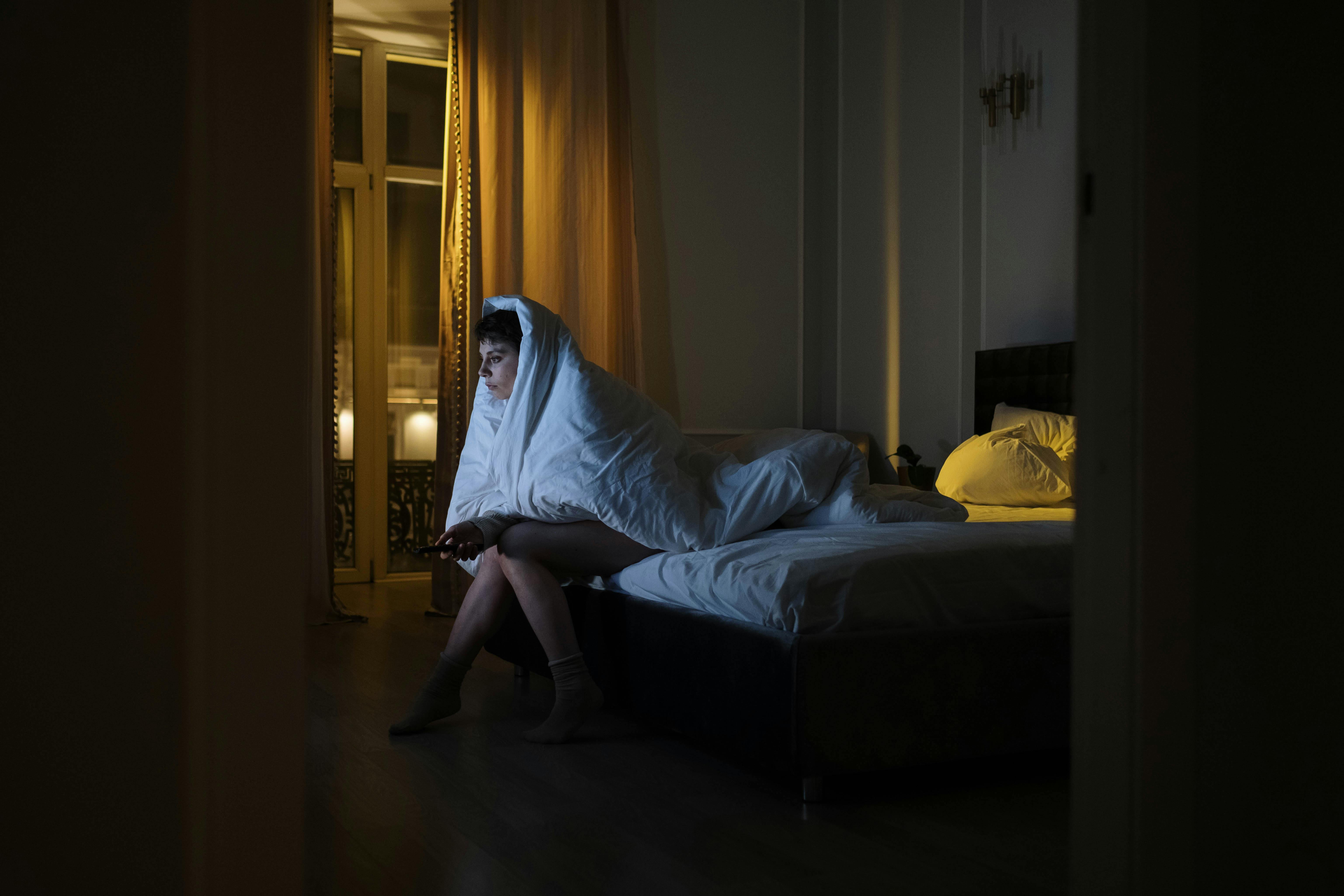The Connection Between Anxiety and Sleep: Why It Happens and How to Cope
Jun 18, 2025
Have you ever felt completely exhausted, only to lie awake at night with your mind racing? You're not alone. Anxiety and sleep are closely connected—when one is off, the other usually suffers. Worry can make it hard to fall or stay asleep, and lack of sleep can make anxious thoughts feel even louder the next day. In this post, we’ll explore why anxiety disrupts sleep, how poor rest worsens anxiety, and practical ways to break the cycle so you can finally get the rest you need. Learn more about depression and sleep by clicking here.
Table of Contents
Introduction
Have you ever laid in bed at night, mentally and physically drained, only for your thoughts to start racing the moment your head hits the pillow? Instead of drifting off to sleep, your mind replays the day’s conversations, worries about tomorrow, and fixates on everything that could go wrong. You’re not alone. Studies show that nearly 40 million adults in the U.S. struggle with anxiety disorders—and many of them also battle chronic sleep disturbances.
Anxiety and sleep are deeply intertwined. Anxiety can make it hard to fall asleep or stay asleep, while lack of rest can fuel anxiety symptoms the next day. This creates a frustrating cycle that can feel impossible to break: the more you worry, the less you sleep—and the less you sleep, the harder it is to manage your worry.
In this post, we’ll break down why anxiety disrupts your sleep, how poor sleep worsens anxiety, and what you can do to interrupt this cycle and reclaim restful nights.

Why Anxiety Affects Sleep
When you're anxious, your body doesn't know it's bedtime—it thinks it's go time. Anxiety activates your fight-or-flight response, a survival mechanism designed to keep you alert in the face of danger. While this response is helpful in emergencies, it's less helpful when you're trying to fall asleep.
The release of stress hormones like cortisol and adrenaline keeps your body in a state of hyperarousal. Your heart rate increases, your breathing becomes shallow, and your brain stays on high alert. Instead of winding down, your mind races, scanning for threats—real or imagined.
This physiological response can lead to several common sleep problems:
-
Trouble falling asleep: Your thoughts won’t slow down long enough for you to relax.
-
Frequent waking: Even if you fall asleep, your body remains alert and may wake you throughout the night.
-
Nightmares: Heightened anxiety can spill into your dreams, causing distressing or vivid nightmares that disrupt rest.
-
Sleep avoidance: Some people begin to fear sleep itself, dreading the quiet moments when their thoughts become loudest.
Over time, this ongoing disruption can lead to a pattern of chronic insomnia, which in turn fuels even more anxiety—creating a loop that’s hard to escape without intervention.
How Lack of Sleep Makes Anxiety Worse
Sleep isn’t just rest—it’s restoration for your brain and body. When you don’t get enough of it, your ability to cope with stress and regulate emotions takes a major hit.
Sleep deprivation increases irritability, reduces emotional resilience, and makes it much harder to manage anxious thoughts. You may notice that even small stressors—like a missed email or traffic jam—feel overwhelming after a poor night’s sleep.
There’s a neurological reason for this. Insufficient sleep disrupts communication between the amygdala, the brain’s emotional alarm system, and the prefrontal cortex, the part responsible for logic, reasoning, and calming down the amygdala. When you’re sleep-deprived, your brain becomes more reactive and less able to put things into perspective.
In fact, research from UC Berkeley found that people who sleep fewer than 6 hours per night are significantly more likely to experience symptoms of anxiety the following day. The study showed that even a single night of poor sleep can raise anxiety levels by up to 30%.
It’s a vicious cycle: anxiety keeps you awake, and lack of sleep makes you more anxious. But once you understand the pattern, you can begin to disrupt it—and that’s where meaningful change begins.

Signs You Are Stuck in the Anxiety-Sleep Cycle
Sometimes it’s hard to tell whether anxiety is causing your sleep issues—or if your lack of sleep is making your anxiety worse. In many cases, the two feed off each other in a frustrating loop.
Here are some common signs that you might be caught in the anxiety-sleep cycle:
- You dread bedtime because you know your mind will race the moment things get quiet
- You wake up feeling tense, restless, or even panicked, without a clear reason
- You ruminate at night, replaying conversations, mistakes, or worries over and over
- Your anxiety feels noticeably worse after a poor night’s sleep
- You rely on coping habits like scrolling your phone, watching TV, or avoiding sleep altogether to escape your thoughts
If any of these sound familiar, you're not alone—and the good news is, this cycle can be broken with the right tools and support.
How to Cope: Strategies for Breaking the Cycle
Breaking the anxiety-sleep cycle takes time, but small changes can make a big difference. Below are practical strategies to help quiet your mind, improve your sleep environment, and build healthier bedtime habits.
A. Calming the Mind Before Bed
If your thoughts spiral the moment you slow down, it’s essential to train your brain to shift out of “go” mode and into “rest” mode.
-
Mindfulness and breathing exercises: Practices like box breathing or body scans help calm the nervous system and ground you in the present.
-
Progressive muscle relaxation: Tensing and releasing each muscle group helps release built-up tension and signals to your body that it’s safe to relax.
-
Journaling: Writing out your worries or making a to-do list before bed can offload racing thoughts that keep you awake.
-
Cognitive-behavioral techniques: Try “thought-challenging” (asking yourself what’s realistic) or “worry postponement” (setting a specific time the next day to revisit your concerns).
B. Creating a Sleep-Friendly Environment
Your surroundings play a big role in the quality of your sleep. A calming sleep space can help your brain associate the bedroom with rest—not stress.
-
Keep the bedroom cool, dark, and quiet: Use blackout curtains, fans, or earplugs if needed.
-
Limit screens before bed: Blue light from phones and TVs suppresses melatonin, the hormone that helps you sleep.
-
Consider white noise or calming music: Gentle sounds can mask background noise and ease you into sleep.
C. Establishing a Consistent Sleep Routine
A predictable routine helps reset your internal clock and trains your body to expect rest at the same time each night.
-
Go to bed and wake up at the same time daily, even on weekends
-
Develop a calming wind-down ritual like reading, stretching, making tea, or doing skincare to signal to your brain it’s time to slow down.
-
Avoid stimulants like caffeine and heavy meals late in the evening—they can interfere with your ability to fall and stay asleep.
D. When to Seek Help
If anxiety and sleep problems persist despite your best efforts, it may be time to reach out for professional support.
-
Signs it’s time to get help:
-
Sleep troubles are interfering with your daily life
-
You regularly feel anxious, overwhelmed, or hopeless
-
Self-help strategies haven’t improved your symptoms over time
-
Therapies like CBT-I (Cognitive Behavioral Therapy for Insomnia) are highly effective in treating sleep issues and anxiety together. You might also benefit from therapy focused specifically on anxiety disorders, especially if your sleep challenges are part of a larger emotional pattern.

There Is Hope
If you’re struggling with anxiety and sleep, know this: you’re not alone. Many people—perhaps more than you realize—lie awake at night wrestling with racing thoughts, tense bodies, and the fear that restful sleep will never come.
But here’s the good news: change is possible. You don’t need to overhaul your entire life to feel better. Small, consistent shifts—like creating a calming bedtime routine, challenging anxious thoughts, or speaking with a therapist—can have a powerful impact over time.
Take Maria, a former client in her early 30s, who once described bedtime as the “scariest part of her day.” She would lie awake for hours, dreading the silence that made her anxiety louder. Through therapy and gentle habit changes—like journaling at night and learning to breathe through her worry—she began falling asleep more easily. It didn’t happen overnight, but within weeks, she was sleeping through the night and waking up without a sense of dread.
You deserve that kind of peace, too.
Your brain and body want to rest. Sometimes they just need help finding the way.
Conclusion
Anxiety and sleep are deeply connected, each one influencing the other in ways that can feel overwhelming—but you don’t have to stay stuck in the cycle. Understanding how anxiety disrupts rest, and how sleep deprivation fuels anxious thoughts, is the first step toward reclaiming your nights.
The tools to cope are within reach. Whether it’s building a consistent bedtime routine, calming your mind through mindfulness, or reaching out for professional support, small steps really can lead to meaningful change.
More Resources
If you are interested in learning more, click here. For more information on this topic, we recommend the following:
Are you passionate about helping others unlock their potential? Our Board Certified Coach (BCC) training, approved by the Center for Credentialing & Education (CCE), equips you with the skills, tools, and certification needed to thrive as a professional coach. Take the next step toward a rewarding coaching career with our comprehensive program! Click here to learn more!
The Sleep Workbook: Easy Strategies to Break the Anxiety-Insomnia Cycle
Sleep Through Insomnia: End the Anxiety and Discover Sleep Relief with Guided CBT-I Therapy
DISCLAIMER: As an Amazon Associate we earn from qualifying purchases. This post may contain affiliate links that will reward us monetarily or otherwise when you use them to make qualifying purchases. In addition, there may be non-Amazon affiliate links in this post which means we may receive a commission if you purchase something through a link. However, be assured that we only recommend products that we see genuine value in.
The information provided is for educational purposes only and does not constitute clinical advice. Consult with a medical or mental health professional for advice.
Finances do not have to prevent you from getting support.
Come join our support community.
Where would you like us to send the free support group invite and complimentary workbook?
Your Information Will Be Kept Private




